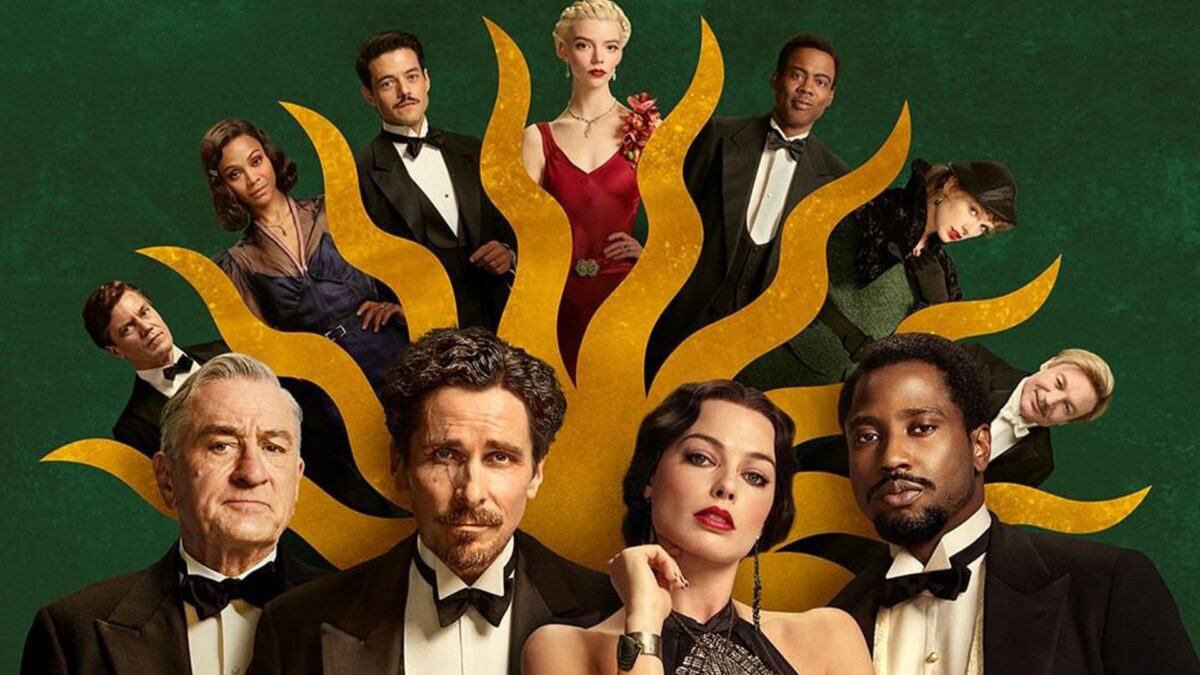by Bryan & Heather
A noir crime thriller, with betrayal around every turn. An exploration of America’s treatment of veterans. A quirky near-tragicomedy filled with Wes Anderson sensibility. An expose of how fascism has historically been a larger part of the American experiment than we’d like to admit. As we pulled up David O. Russel’s star-studded film Amsterdam, we had no idea just how much we were in for. All we remembered was seeing a trailer for a zany interwar period piece back in the fall of 2022, so when we noticed it on Max recently, we decided to check it out.
Amsterdam follows the actions of Burt Berendsen (Christian Bale), an eccentric disgraced doctor and veteran of the First World War, and his friend, partner, and fellow veteran Harold Woodman (John David Washington) as they attempt to unravel the mysterious murder of their former commanding officer’s daughter right in front of them after she had hired them to investigate her father’s untimely death. Their case eventually reunites them with Valerie Bandenberg (Margot Robbie), the nurse that assisted them in their recovery from wounds received in the war and with whom they had lived together in Amsterdam after the close of hostilities before Burt returned to New York to be with his now-estranged wife. Soon the trio unearths a sprawling fascist conspiracy drawing in many of America’s leading titans of industry whose plot will make use of Burt and Harold’s own Veterans’ Gala to launch their coup.
As it turns out, Amsterdam based its story loosely on the so-called “Business Plot” to overthrow President Franklin D. Roosevelt in 1933, and Robert DeNiro’s General Gil Dillenbeck is explicitly a fictional stand-in for General Smedley Butler, who testified about the real conspiracy before Congress in 1934 and supported veterans similarly to how Dillenbeck does in the film. The conspiracy’s overt connections to Nazism were created for the film, though the Business Plot itself was assuredly fascist in nature. We hadn’t expected Amsterdam to be so historically grounded, highlighting a little-known element of the fractious resistance to FDR’s policies in the leadup to the Second World War. The problem, however, is that the film never really delivers on anything it tries to do. Its quirkiness feels forced and artificial (with some of the worst expository dialogue we’ve recently seen) and the historical threads of its story are by and large sacrificed in favor of the main trio’s wistful reminiscences of their carefree lives in Amsterdam. Indeed, the plot would feel more dire if it ever seemed like there was a real chance of the veterans following the fascist organizers’ lead, yet despite references to real events like the 1932 Bonus March on Washington and the general disrespect Burt faces from his in laws, no veteran character entertains the idea of turning against the government even for a second. Just one or two scenes where Burt seriously considered how he and his brethren have been mistreated, and that here is a chance to seek personal redress, the rest of the country be damned, might have transformed the film into something a bit more interesting and historically consequential.
As it is, though, Amsterdam is all style and no substance, devoid of stakes and more concerned with superficial humorous vibes and setting up the next of its endless cameos. While it makes for fairly easy watching and may expose viewers to some lesser known history, surface-level exposure is all it really offers. We don’t regret watching it, per se, but found it ultimately forgettable, especially amongst all the other interwar dramas that have much more to say about the period, whether as aftermath of the First World War or the gathering storm of the Second.
